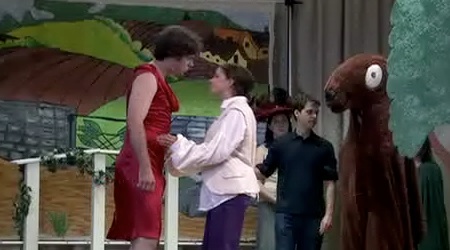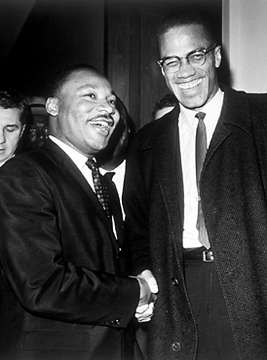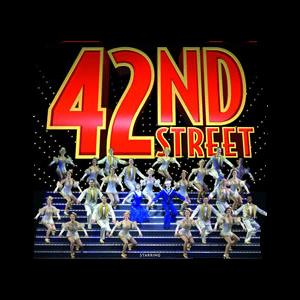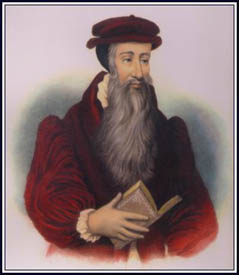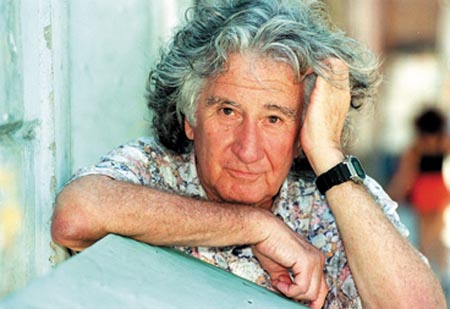I subscribe to a service called “SiteMeter” which allows me to see a limited amount of information about my visitors. One thing that I can see is if someone finds my site via a Google search, and what they were searching for.
Every now and then I check in on what searches people have done to find themselves at Shakespeare Teacher, and to respond to those search terms in the name of fun and public service. All of the following searches brought readers to this site in the past week.
Enjoy!
catherine of aragon monologue
Queen Katherine in Shakespeare’s Henry VIII is Catherine of Aragon. You can find good monologue material here and here.
agusto boal’s influences
You really have to consider Paulo Friere as Augusto Boal’s number one influence. Boal’s works also contain significant references to Marx, Hegel, Aristotle, Brecht, and Shakespeare. He was, of course, also greatly influenced by all of the many people with whom he interacted during his lifetime.
teacher help for shakespeare hamlet obituaries
I love the idea of having students write obituaries for Shakespeare’s characters. They could also write classified ads, advice column requests, and news stories. I’ve recently read blog posts where characters from Shakespeare have written Letters to Santa and New Year’s Resolutions, and these seem like good writing assignments for students as well.
why is macbeth so successful
Because he kills everyone who might possibly get in his way. But is he ultimately successful? See below.
what does macbeth have to look forward to in his old age?
Nothing. He’s dead.
Even if he weren’t, life would be bleak. His wife would be gone, and he’d be out of power. And as a former tyrant, he’d be made a laughing stock among the people. His decision to attack Macduff after all of the prophecies have come true may seem reckless to us, but he may not feel that he has a choice.
hidden messages in shakespeare “i … wrote this”
People looking for hidden “I wrote this” messages in Shakespeare are generally looking to prove that the plays were written by someone else. Shakespeare would have had little reason to hide such a message. But take a look at this page from a late Hamlet quarto, and see if you can find Shakespeare’s authorship message (hint: look at the writing below “Hamlet, Prince of Denmark”).
slings and arrows the tempest
None of the three seasons of Slings & Arrows centered around The Tempest, but the very first scene of the series does. Geoffrey is directing this very play before the events that will bring him back to the New Burbage. I often tell people who may be interested in the show to watch this scene and the opening credits, and if they’re not hooked by then, there is no need to go on.
ideas for teaching macbeth to 10 year olds
With this age group, I recommend doing activities to introduce the plot, characters, and themes of the play before they read the actual text. Start here, and if you like what you read, check out my doctoral dissertation, which was on this exact topic. You should also check out the Cambridge School Shakespeare Macbeth , which has a lot of great activities that can be adapted to this age group, and the Shakespeare Set Free book that includes Macbeth
, which has a lot of great activities that can be adapted to this age group, and the Shakespeare Set Free book that includes Macbeth for even more great ideas.
for even more great ideas.
which war occured during shakespeare’s life
Probably the most significant war Shakespeare lived through was the undeclared Anglo-Spanish War. In the late 16th century, Spanish King Phillip II was gathering an international coalition of Catholic forces to launch an invasion of England and overthrow Queen Elizabeth I. The Spanish Armada was famously defeated by the English navy in 1588. This victory launched a new wave of patriotic fervor among the English, and a popular trend of writing plays about English kings just as Shakespeare was beginning his career as a playwright.
was shakespeare a tudor
No. Tudor was the surname of the English royal family from 1485 to 1603. The man we refer to as King Henry VIII was born Henry Tudor, Queen Elizabeth I was Elizabeth Tudor, etc. Margaret Tudor, sister of Henry VIII, married James Stuart (King James IV of Scotland) and their offspring continued the Stuart line in Scotland. Eventually, the Stuarts (in the person of James VI of Scotland) ascended to the English throne as well. When we speak of the Tudors and the Stuarts, then, we are not referring to titles, but to actual family names.
So, Shakespeare wasn’t a Tudor; he was a Shakespeare. But he was born and raised under Tudor rule. He lived the rest of his life under Stuart rule.
oikos polis anthony and cleopatra
I was taken aback by this one.
In this post, I discussed how ancient Greek playwrights would often show characters torn between their solemn duties to their oikos (family) and their polis (state), and how this is also a recurring theme in the television series 24. I also discussed how both 24 and ancient Greek tragedy share a unity of place, and used Antony and Cleopatra as a counter-example to demonstrate that Shakespeare did not have to conform to this unity.
What, then, was this search looking for? I don’t really think that oikos vs. polis is a theme in Antony and Cleopatra. It seems to me that the interests of family and state are aligned, and what the title characters are really balancing are those interests vs. their own passions.
king of england who did not have y chromosomes
The technical term for a king with no Y chromosomes is a “queen.” Notable queens of England have included a couple of Elizabeths, a couple of Marys, an Anne, and a Victoria (plus others, depending on what you want to count).
Almost by definition, a man has an X chromosome and a Y chromosome, and a woman has two X chromosomes. I say almost, because it is possible for there to be variations, but I am not familiar with any kings of England with such a condition.
I leave the task of responding to the remaining search terms to my readers:
prisoner’s dilemma lear
list of tv influenced by shakespeare
how to write a tudor invitation
robert duvall shakespeare
what does evil teach king lear?
shakespeare visual art
vienna`s english theatre macbeth zusammenfassung
genghis the teacher
social justice theatre
teaching the tempest using utube
humor in othello
comment of fifth act of macbeth from line 10 to 25
